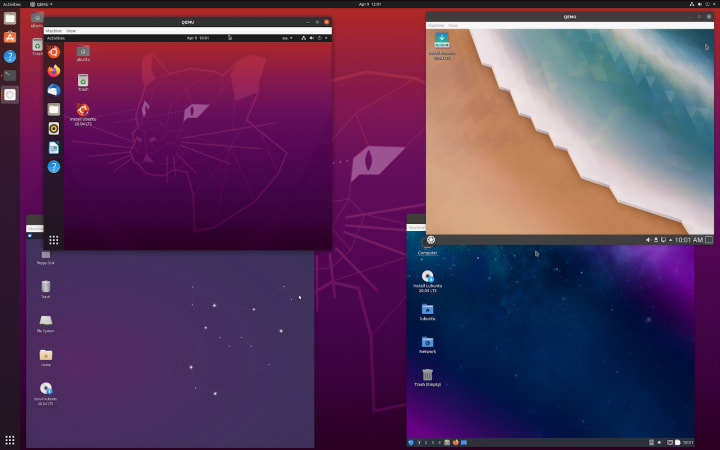QEMU and libvirt enhancements in Ubuntu 20.04 LTS
Joshua Powers
on 7 May 2020
Tags: #Libvirt , QEMU , Server , Ubuntu , Virtualisation

This article originally appeared on Joshua Powers’ blog
Ubuntu is the industry-leading operating system for cloud hosts and guests. Every day millions of Ubuntu instances are launched in private and public clouds around the world. Many launched right on top of Ubuntu itself. Canonical takes pride in offering the latest virtualization stack with each Ubuntu release.
In Ubuntu 20.04 LTS (Focal Fossa), users can find the recently released QEMU version 4.2 and libvirt version 6.0 available on day one. These new versions have brought a number of key updates to the virtualization stack. Here are the most notable ones:
- Included in QEMU are the qboot ROM, the microvm machine type, and a minimized QEMU build. This combination allows for a much faster boot of Linux on x86 platforms.
- Support for nested virtualization
- As systems grow larger and larger QEMU guests can now create x86 guests with memory footprints as large as 8TB.
- Migration from SDL to GTK based UI backend to improve scaling and speed
- Increased speed of migrations via free page hinting through virtio-balloon
- PMEM and virtual nvdimms are available for general usage
Each release the Canonical team takes great care in considering what versions of QEMU and libvirt to include. The versions are determined through a careful process where the team weighs new upstream release features, schedules, and bug fixes. For more details on this process refer to the following blog.
Download Ubuntu 20.04 LTS (Focal Fossa).
Talk to us today
Interested in running Ubuntu in your organisation?
Newsletter signup
Related posts
Google Authd broker: authenticate to Ubuntu Desktop/Server with your Google account
With the Authd broker for Ubuntu you can use your personal or Workspace Google account to authenticate to Ubuntu Server or Desktop
Profile-guided optimization: A case study
Software developers spend a huge amount of effort working on optimization – extracting more speed and better performance from their algorithms and programs....
SONiC: The open source network operating system for modern data centers
Software for Open Networking in the Cloud (SONiC) is an open-source network operating system that has revolutionized data center networking. Originating as a...
